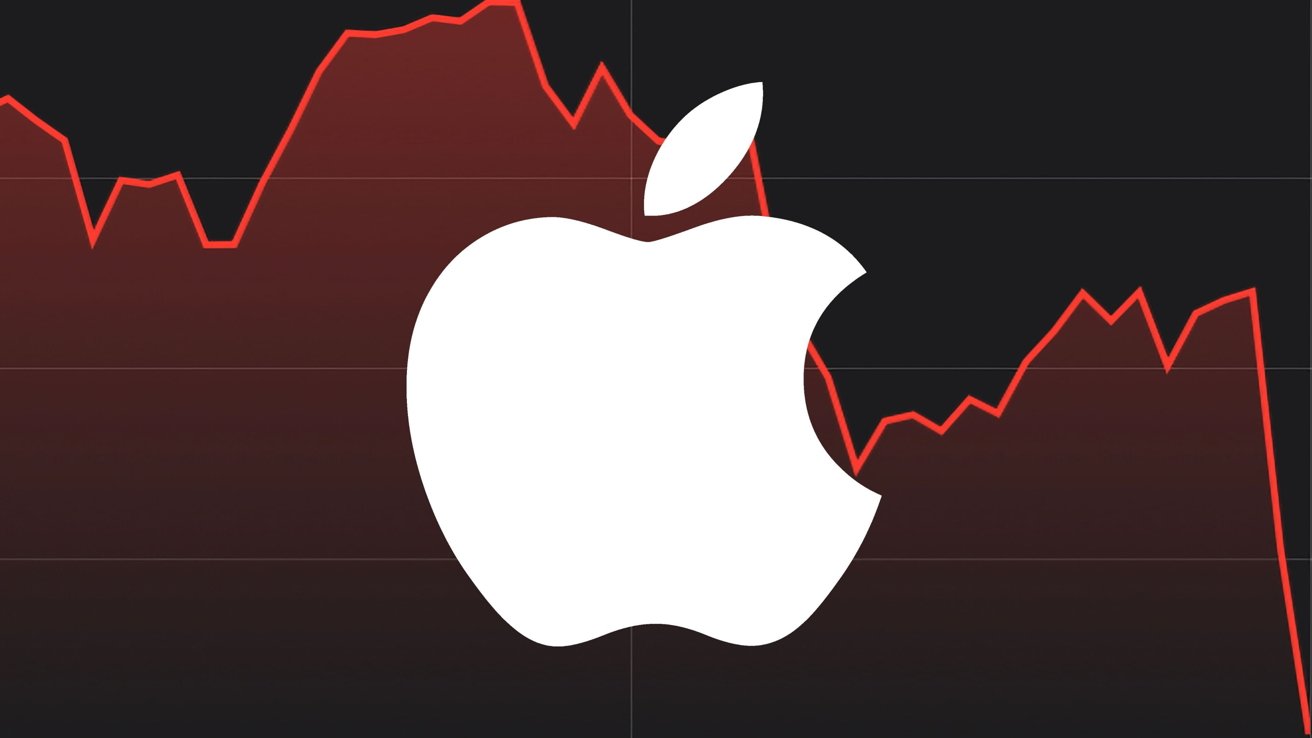Apple Inc. is experiencing a significant downturn in its stock value, marking the fourth consecutive day of losses. This decline is largely attributed to escalating trade tensions between the United States and China, coupled with broader market volatility.
Market Performance and Volatility
On April 7, 2025, Apple’s stock closed at $181.46, a sharp drop from its pre-announcement value of $223.89. Despite a brief recovery during overnight trading, where shares reached $183.67, the stock continued its downward trajectory, closing at $172.87 on April 8, 2025. This represents a more than 5% decline for the day and marks the company’s worst four-day performance since 2001.
The broader market has also been affected. The S&P 500 fell 4.8%, its worst day in five years, while the Nasdaq dropped 6%, and the Russell 2000 decreased by 6.6%. Collectively, over $2 trillion in market value was erased. Major companies, including Apple, Best Buy, Nike, and The Gap, experienced significant losses. Dell Technologies saw the largest decline at 19%, while Lamb Weston gained 10% following strong quarterly results. The dollar weakened, and Treasury yields dropped as investors sought safer investments. Global leaders responded with promises of countermeasures, with the EU preparing responses, China vowing to defend its economic interests, and Canada announcing a 25% tariff on non-compliant U.S. vehicle imports. Japan and Mexico also expressed resistance to the tariffs. Additionally, Stellantis paused production in Canada and Mexico, and developments are expected soon on a TikTok deal. WeightWatchers faces pressure from investor Premca Capital for corporate reforms. ([axios.com](https://www.axios.com/newsletters/axios-closer-f5872e80-10a9-11f0-9b5b-09043c8f0cb6?utm_source=openai))
Impact of U.S.-China Trade Tensions
The recent stock market turmoil is closely linked to the escalating trade tensions between the U.S. and China. President Donald Trump’s administration imposed a 104% tariff on Chinese imports, prompting China to retaliate with increased tariffs on U.S. goods, elevating levies from 34% to 84%. This escalation has led to significant declines across major indices: Dow futures fell 517 points, S&P 500 E-minis dropped 1.21%, and Nasdaq 100 E-minis declined by 1.07%. Wall Street’s volatility index surged near its highest since August, reflecting elevated market fears. Since the tariff announcement a week prior, the S&P 500 has lost over $5.83 trillion in value and is nearing a bear market threshold. Major technology and energy stocks like Apple, Meta, Exxon Mobil, and Chevron recorded losses, while oil prices hit their lowest since February 2021. U.S. bond yields rose due to recession fears, spurring expectations of Federal Reserve interest rate cuts. Meanwhile, Trump’s renewed pledge for pharmaceutical tariffs impacted drugmakers, with Eli Lilly and AbbVie shares falling. Conversely, U.S.-listed Chinese firms like Alibaba saw gains amid state support in Chinese markets. Delta Airlines rose 3.1% after surpassing Q1 profit expectations, despite trade-related uncertainties dampening travel demand. ([reuters.com](https://www.reuters.com/markets/us/futures-struggle-trumps-reciprocal-tariffs-shake-up-global-trade-2025-04-09/?utm_source=openai))
Analyst Downgrades and Growth Concerns
In addition to external trade pressures, Apple faces internal challenges. Analysts from Jefferies and Loop Capital have downgraded Apple’s stock, citing concerns over weak iPhone sales and a lack of consumer interest in artificial intelligence (AI) features. Jefferies analyst Edison Lee downgraded Apple’s stock to Underperform and reduced the price target by 13% to $200.75. Loop Capital also downgraded Apple’s stock from Buy to Hold, with a revised price target of $230, down from $275. These downgrades reflect concerns over Apple’s ability to maintain its growth momentum, particularly in the face of intense competition in the China market and a potential slowdown in AI-driven smartphone demand. ([techpulseinsights.com](https://www.techpulseinsights.com/2025/01/21/apple-stock-downgraded-by-major-banks-amid-weak-iphone-sales-and-ai-concerns/?utm_source=openai))
Broader Economic Implications
The current market volatility and trade tensions have broader economic implications. The International Monetary Fund (IMF) has warned of heightened global economic risks. Countries including China and France have condemned the U.S. tariffs, with China promising retaliation and French President Macron urging a halt to EU investments in the U.S. UK Prime Minister Keir Starmer vowed to push for a trade deal. Domestically, companies like Stellantis are cutting jobs as supply chains are disrupted. Investors have moved funds to U.S. Treasury bonds, anticipating more Federal Reserve interest rate cuts. ([ft.com](https://www.ft.com/content/e740691f-c3ce-4615-a228-8ca008722d27?utm_source=openai))
Conclusion
Apple’s recent stock decline is a result of a complex interplay between escalating U.S.-China trade tensions, market volatility, and internal challenges related to product demand and innovation. As the situation evolves, stakeholders will closely monitor developments to assess the potential for recovery and growth in the coming months.



